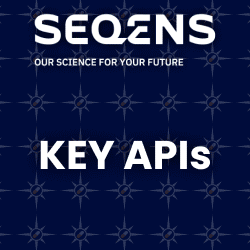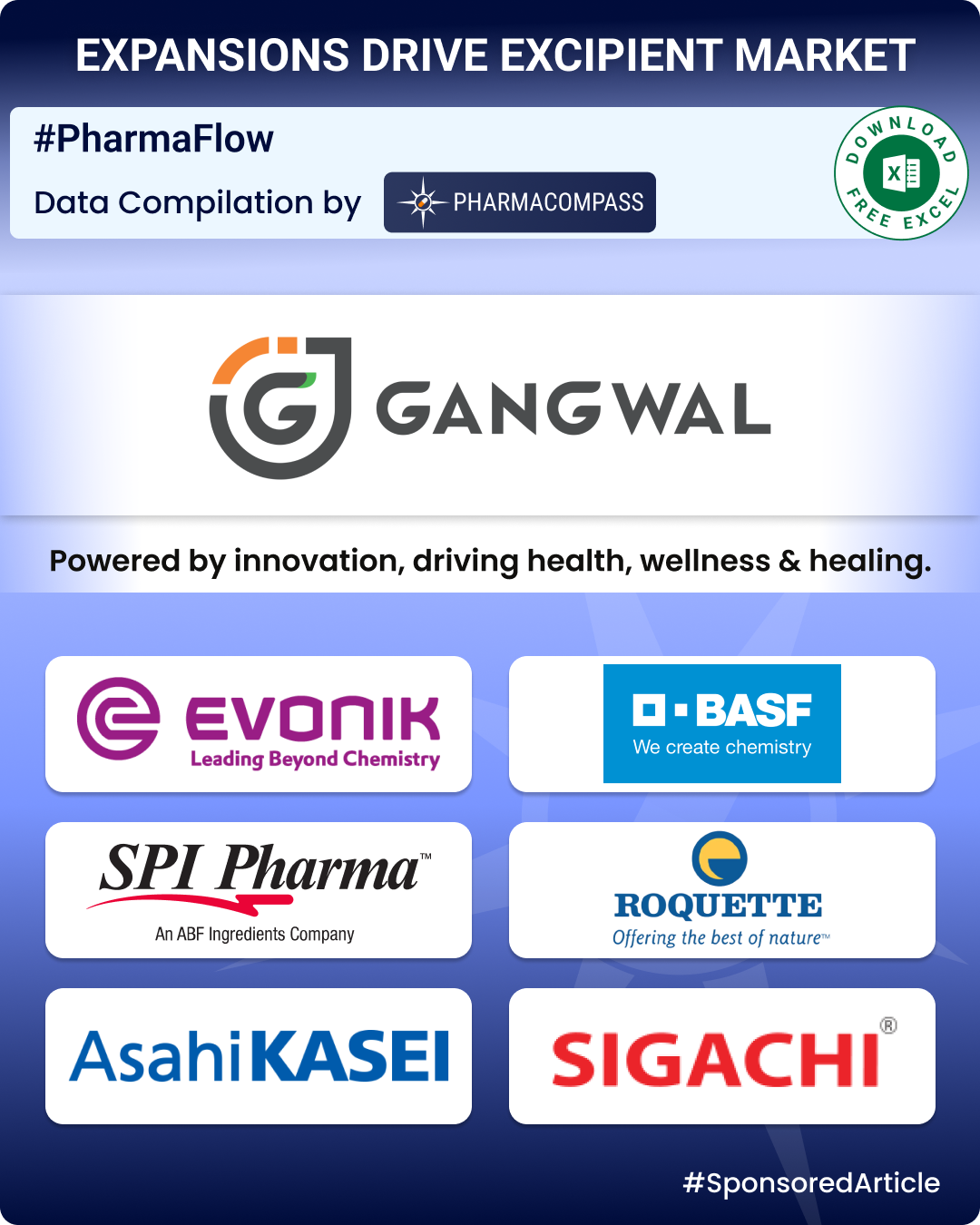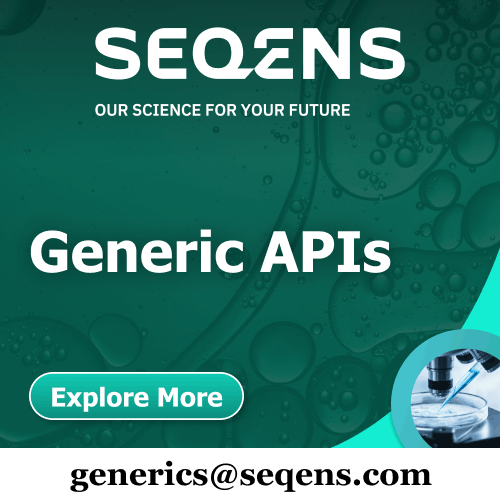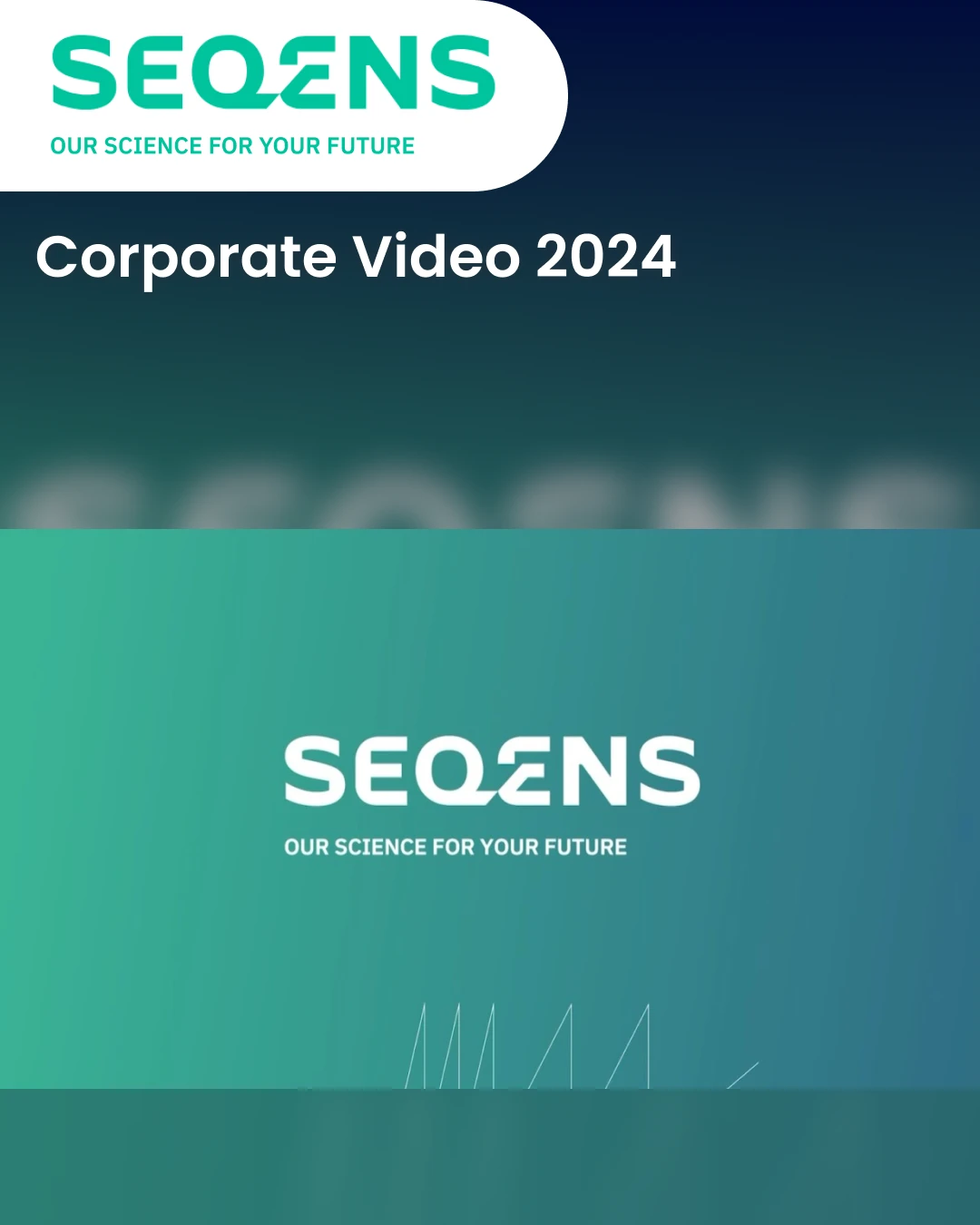28 Jan 2026
// PRESS RELEASE
28 Jan 2026
// PRESS RELEASE
20 Jan 2026
// PRESS RELEASE
 KEY PRODUCTS
KEY PRODUCTS KEY SERVICES
KEY SERVICES
Seqens is an integrated global leader in pharmaceutical solutions & specialty ingredients, & custom-made solutions to our customers.
About
Industry Trade Show
Lotte New York Palace
23-26 March, 2026
euroPLX 90 LisboneuroPLX 90 Lisbon
Industry Trade Show
Not Confirmed
02-03 March, 2026
BIO CEO & InvestorBIO CEO & Investor
Industry Trade Show
Not Confirmed
02-03 March, 2026
CONTACT DETAILS




Events
Webinars & Exhibitions
Industry Trade Show
Lotte New York Palace
23-26 March, 2026
euroPLX 90 LisboneuroPLX 90 Lisbon
Industry Trade Show
Not Confirmed
02-03 March, 2026
BIO CEO & InvestorBIO CEO & Investor
Industry Trade Show
Not Confirmed
02-03 March, 2026
https://www.pharmacompass.com/speak-pharma/we-ve-quadrupled-our-production-and-added-new-customers-during-the-pandemic-speakpharma-with-wavelength-pharmaceuticals
CORPORATE CONTENT #SupplierSpotlight
https://www.pharmacompass.com/radio-compass-blog/excipient-market-overview-evonik-launches-high-purity-excipients-india-mandates-disclosures-from-march-2026
https://www.pharmacompass.com/radio-compass-blog/cdmo-activity-tracker-veranova-carbogen-lead-adc-investments-axplora-polfa-tarchomin-famar-expand-european-footprint
https://www.pharmacompass.com/radio-compass-blog/excipient-market-overview-roquette-announces-restructuring-post-iff-pharma-buyout-who-fda-advance-regulatory-frameworks
https://www.pharmacompass.com/radio-compass-blog/cdmo-activity-tracker-bora-polpharma-make-acquisitions-evonik-euroapi-porton-announce-technological-expansions
https://www.pharmacompass.com/radio-compass-blog/chinese-fda-registered-generic-facilities-gain-steam-india-maintains-lead-with-396-facilities
https://www.pharmacompass.com/radio-compass-blog/us-europe-turn-to-advanced-manufacturing-stockpiling-to-strengthen-drug-supply-chains
https://www.pharmacompass.com/radio-compass-blog/excipient-market-overview-roquette-seqens-evonik-make-strategic-moves-new-guidelines-deal-with-contamination
https://www.pharmacompass.com/radio-compass-blog/cdmo-activity-tracker-novo-s-parent-buys-catalent-for-us-16-5-bn-fujifilm-merck-kgaa-axplora-lonza-expand-capabilities

28 Jan 2026
// PRESS RELEASE
https://www.seqens.com/formulating-differently-biobased-diols-the-key-to-ecofriendly-effective-cosmetics/

28 Jan 2026
// PRESS RELEASE
https://www.seqens.com/neo-solvents-5-criteria-for-a-more-sustainable-chemistry/

20 Jan 2026
// PRESS RELEASE
https://www.seqens.com/seqens-roscan-6253nv-is-registered-on-the-lusc-list/

16 Dec 2025
// PRESS RELEASE
https://www.seqens.com/brenntag-and-seqens-partner-for-the-commercialization-of-non-gmp-pharmaceutical/

07 Oct 2025
// PRESS RELEASE
https://www.seqens.com/bbg-advanced-therapies-and-cellforcure-partner-to-provide-transatlantic-manufacturing-solutions-for-advanced-therapy-medicinal-products-atmps/

29 Jul 2025
// PRESS RELEASE
https://www.seqens.com/seqens-personal-care-article-how-to-improve-skin-well-being-by-taking-inspiration-from-centenarians-longevity-secrets/
Services
Analytical
API Manufacturing
API & Drug Product Development
Excipients
Excipients by Ingredients
Excipients By applications
Inspections and registrations
Country : Germany
City/Region : Lahr
Audit Date : 2025-11-04
Audit Type : On-Site
Country : China
City/Region : Taixing, Jiangsu
Audit Date : 2025-07-21
Audit Type : On-Site
Country : Israel
City/Region : Be’er Sheva
Audit Date : 2023-09-13
Audit Type : On-Site
 FULL SCREEN VIEW Click here to open all results in a new tab [this preview display 10 results]
FULL SCREEN VIEW Click here to open all results in a new tab [this preview display 10 results]ABOUT THIS PAGE
Seqens is a supplier offers 85 products (APIs, Excipients or Intermediates).
Find a price of Alimemazine bulk with DMF, CEP, JDMF offered by Seqens
Find a price of Cetirizine Dihydrochloride bulk with DMF, CEP, JDMF offered by Seqens
Find a price of Fluticasone Propionate bulk with DMF, CEP, JDMF offered by Seqens
Find a price of Glycopyrronium Bromide bulk with DMF, CEP, JDMF offered by Seqens
Find a price of Granisetron Hydrochloride bulk with DMF, CEP, JDMF offered by Seqens
Find a price of Ketamine Hydrochloride bulk with DMF, CEP, JDMF offered by Seqens
Find a price of Methimazole bulk with DMF, CEP, JDMF offered by Seqens
Find a price of Oxybutynin Hydrochloride bulk with DMF, CEP, JDMF offered by Seqens
Find a price of Timolol Maleate bulk with DMF, CEP, JDMF offered by Seqens
Find a price of Articaine Hydrochloride bulk with DMF, CEP offered by Seqens
Find a price of Baclofen bulk with DMF, CEP offered by Seqens
Find a price of Ciclopirox bulk with DMF, CEP offered by Seqens
Find a price of Cisatracurium Besylate bulk with DMF, CEP offered by Seqens
Find a price of Clomiphene Citrate bulk with DMF, CEP offered by Seqens
Find a price of Clonidine bulk with DMF, CEP offered by Seqens
Find a price of Esketamine Hydrochloride bulk with DMF, CEP offered by Seqens
Find a price of Flumazenil bulk with CEP, JDMF offered by Seqens
Find a price of Fluticasone Furoate bulk with DMF, JDMF offered by Seqens
Find a price of Midazolam bulk with DMF, JDMF offered by Seqens
Find a price of Modafinil bulk with DMF, CEP offered by Seqens
Find a price of Permethrin bulk with DMF, CEP offered by Seqens
Find a price of Praziquantel bulk with DMF, CEP offered by Seqens
Find a price of Rotigotine bulk with DMF, CEP offered by Seqens
Find a price of Sodium Phenylbutyrate bulk with DMF, JDMF offered by Seqens
Find a price of Timolol Maleate bulk with DMF, CEP offered by Seqens
Find a price of Tiotropium Bromide bulk with DMF, CEP offered by Seqens
Find a price of Ammonium Lactate bulk with DMF offered by Seqens
Find a price of Apraclonidine Hydrochloride bulk with DMF offered by Seqens
Find a price of Cetirizine Dihydrochloride bulk with DMF offered by Seqens
Find a price of Ciclopirox Olamine bulk with CEP offered by Seqens
Find a price of Cilostazol bulk with DMF offered by Seqens
Find a price of Cisatracurium Besylate bulk with CEP offered by Seqens
Find a price of Clomiphene Citrate bulk with DMF offered by Seqens
Find a price of Clonidine bulk with DMF offered by Seqens
Find a price of Desipramine Hydrochloride bulk with DMF offered by Seqens
Find a price of Granisetron bulk with DMF offered by Seqens
Find a price of Heptaminol bulk with CEP offered by Seqens
Find a price of Mometasone Furoate bulk with DMF offered by Seqens
Find a price of Moxonidine bulk with CEP offered by Seqens
Find a price of Olopatadine Hydrochloride bulk with DMF offered by Seqens
Find a price of Oxybutynin bulk with DMF offered by Seqens
Find a price of Oxybutynin Hydrochloride bulk with JDMF offered by Seqens
Find a price of Palonosetron bulk with DMF offered by Seqens
Find a price of Paracetamol bulk with JDMF offered by Seqens
Find a price of Piperidolate Hydrochloride bulk with JDMF offered by Seqens
Find a price of Podophyllotoxin bulk with DMF offered by Seqens
Find a price of Promazine bulk with CEP offered by Seqens
Find a price of Rocuronium Bromide bulk with DMF offered by Seqens
Find a price of Tamoxifen Citrate bulk with JDMF offered by Seqens
Find a price of Tazarotene bulk with DMF offered by Seqens
Find a price of Tetrahydrozoline bulk with CEP offered by Seqens
Find a price of Timolol Maleate bulk with DMF offered by Seqens
Find a price of Troxerutin bulk with CEP offered by Seqens
Find a price of Pholcodine bulk offered by Seqens
Find a price of Clascoterone bulk offered by Seqens
Find a price of Clonidine bulk offered by Seqens
Find a price of Dabrafenib Mesylate bulk offered by Seqens
Find a price of Disopyramide bulk offered by Seqens
Find a price of Divalproex Sodium bulk offered by Seqens
Find a price of Dorzolamide Hydrochloride bulk offered by Seqens
Find a price of Etripamil bulk offered by Seqens
Find a price of Flumazenil bulk offered by Seqens
Find a price of Fluralaner bulk offered by Seqens
Find a price of Glycopyrronium Tosylate bulk offered by Seqens
Find a price of Granisetron Hydrochloride bulk offered by Seqens
Find a price of Hemin bulk offered by Seqens
Find a price of Ketamine Hydrochloride bulk offered by Seqens
Find a price of Lotilaner bulk offered by Seqens
Find a price of Midazolam Hydrochloride bulk offered by Seqens
Find a price of Midazolam Maleate bulk offered by Seqens
Find a price of Mifepristone bulk offered by Seqens
Find a price of Oclacitinib Maleate bulk offered by Seqens
Find a price of Oxeladin bulk offered by Seqens
Find a price of Pindolol bulk offered by Seqens
Find a price of Propofol bulk offered by Seqens
Find a price of R-Ketamine bulk offered by Seqens
Find a price of Remimazolam Besylate bulk offered by Seqens
Find a price of Reproxalap bulk offered by Seqens
Find a price of Roluperidone bulk offered by Seqens
Find a price of Sitagliptin Phosphate bulk offered by Seqens
Find a price of Sodium Phenylacetate bulk offered by Seqens
Find a price of Sparsentan bulk offered by Seqens
Find a price of Tapinarof bulk offered by Seqens
Find a price of Varenicline Tartrate bulk offered by Seqens
Find a price of Vedaprofen bulk offered by Seqens


 Seqens
Seqens




